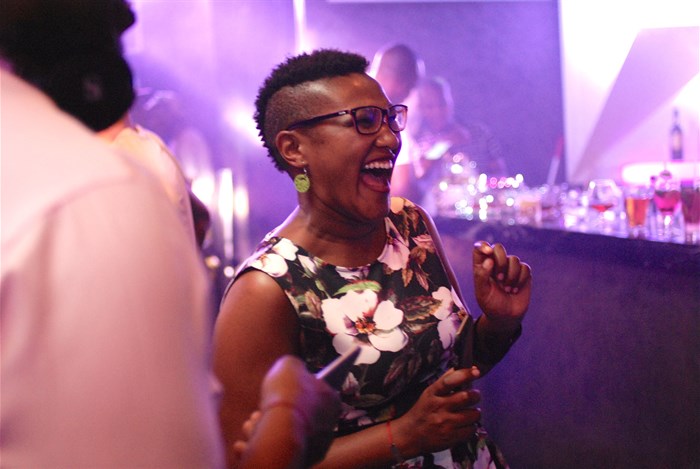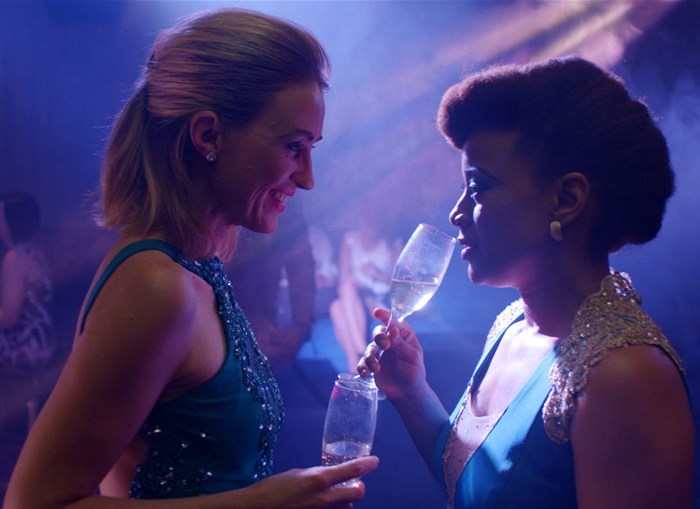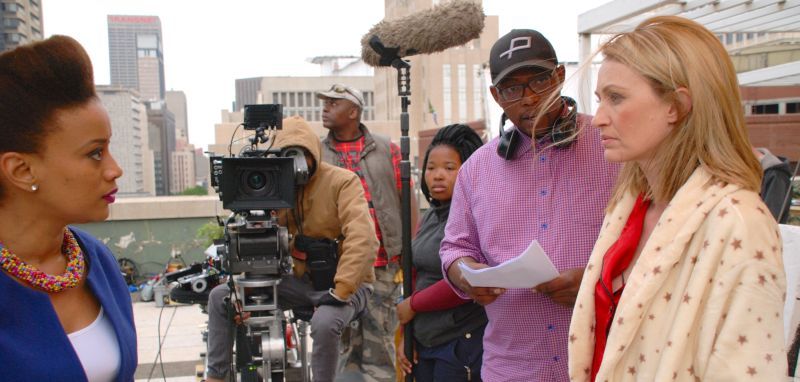
Top stories






More news

Marketing & Media
Warner Bros. was “nice to have” but not at any price, says Netflix

Logistics & Transport
Maersk reroutes sailings around Africa amid Red Sea constraints
















That is the harsh reality that Megan (Diaan Lawrenson) has to deal with when her fairytale life comes crashing down – all thanks to her husband, Lloyd (Neels van Jaarsveld), who gets arrested for tax fraud, resulting in the family losing everything they own.
As the storyline of the film unfolds after the rug is pulled out from under her, she has to try and rebuild herself and her life by rediscovering her love for cooking and the flavours of life that she has long since forgotten. With the help of her best friend, Lindiwe (Renate Stuurman), she learns that the path back home begins with realising that she is enough and that all she needs is her three courses of love – family, friends, and food.
I feel that cooking and eating is more than a biological need. I look at it as an emotional and sometimes (when I get things right) an artistic expression. I’ve never met a recipe I haven’t altered or added something to. Made it my own, which is the beauty for people that love to cook. As a writer, I do the same thing, I understand the rules of a genre and then make them my own to tell a story in my own way. The same way I put my feeling into the food I feed my family and friends, is the same way I pour my emotions and feeling into my writing.

The story is fiction but it was inspired by the end of my marriage. I used the writing process to deal with my feelings and experiences, I was finding a way to make my life and family work now that the marriage is over. Megan’s trial and error was a wonderful outlet and playground.
This is a mistake. A huge mistake. One I made. I did this. I went into my marriage and sacrificed huge parts of myself to be a ‘good’ wife, to be a ‘good’ mother, and to be a ‘good’ daughter-in-law. I gave up parts of my career, hobbies, and many friends to fit into some bizarre construct of what and who I was supposed to be now that I was a married woman. I even gave up my love for exploring and tinkering in the kitchen. That was the last straw.
Friendship is universal. My friendships have saved my life. My friends are the family I have chosen for myself. I am lucky enough to live in South Africa where these people who I love and who love me are multicultural and dynamic. So portraying that in Table Manners was very important.
We all have to eat. It’s a human unifier. How we eat not only says a lot about where you’re from but it also can say who you are and who you’re becoming. For me, the adventure lies in these basic things. How a simple meal heals, creates joy, evokes memories. That is the power of food, family, and love.

Motherhood is personal and individual. Every mother makes decisions for her kids and forms her family the way she wants it. The world tends to judge mothers too harshly for being human and has super human expectations towards them. I am lucky enough to have an amazing support system to catch my kids in case I can’t. Lindiwe is that village and support system for Megan and a big part of this movie was showing other mothers out there that we all need a Lindiwe too.
Yes. Balancing my emotions with those of the character was tough. I was using my feelings as a baseline which helped at the beginning but my feelings of anger hindered the story as I got further in the script. My co-producer and director Leli Maki helped me to balance the story out, letting fun moments breathe and be fun, digging deeper for the more emotional parts and letting those be ugly. I wanted to write a hero and I had to balance that out with her humanity and we ended up with a wonderful woman who stumbles but always gets up. That’s why we root for her.
This process took three years from starting to put words on paper to the first screening.
Thankfully I also produced so I was able to be part of the decision-making and the bringing to life of the words. I had to take a giant step back as a creative and let my director create his vision of the story. His vision is what we all watch when we see the film so once I handed over the script that was it, his word is final; tucking in my writer’s ego was, how do I put it, a daily exercise in personal growth!
Leli Maki helped shape the narrative to keep it balanced and entertaining. Which was very important for days when I was writing from a very emotional place. He helped a create a distance between my feelings and Megan’s feelings for the benefit of the story.
Yes, I start out writing characters I would like to play, characters that other actresses will have fun with. Basically the kind of women I think would be fun to bring to life. Then I have to take a mental step back and let them be themselves, for better or worse.

Thorsten Wedekind is our casting director, he and Leli made most of the casting decisions and I come in on the final approval rounds. I loved their choices and still have my Vito votes tucked away! We lucked out because we got an amazing cast. I am so happy in how they brought the characters I wrote to life.
I am hopeful about the industry. More and more people are able to tell their stories. And the audience is becoming more discerning forcing us to become better storytellers.
We still have far to go. I worry about our lack of regulation, not just in cast and crew protections but in the protection and growth of the market as a whole. We are being flooded with foreign content and I worry that the film voices from outside are drowning our film voices out and not giving our movies chance.
South African filmmakers need to do better. We need to find our own uniquely South African film style or voice and in order to do that we need to focus inwards, as filmmakers. We need to do better and push harder so we can find a true South African cinema that resonates with a paying cinema going audience.
I think there are too few screenwriters in South Africa, I think it can only get better. Producers need to put the writers first because without them there are no stories to tell. Which is why I became I became a producer because I love myself, I love stories, and I love writers.
Writers write because they have to. So write. Don’t wait around for someone to give you money before you put the words on paper or on screen as the case may be. Every great screenwriter had the script first and then the money came after. Too many writers want to be paid up front. Sadly that’s not how this business works. You create a beautiful script and then you sell it. Join a writers guild so you can learn how to protect your work, so you can network. But write. The more you write the better you become. Let people you trust read your work. Filmmaking is a collaborative process. Just read the credit list on your favourite film if you don’t believe me.
I don’t know what other producers are looking for but as Jack & Jill Productions we’re looking for characters we want to get to know, characters we want to follow places, and go on adventures with. We want to explore places and points of view that are unpopular, genre-challenging stories that hopefully will get South Africans thinking and feeling.
We as a company look for bold narratives that don’t fit in the industry prescribed boxes. We are actively searching for our voice as writer, director, and producer.
I hope the audience laughs and cries with Megan, and leaves feeling like whatever challenges they are going through, they have what it take to overcome them – family, food, and love. Oh and, of course, leave hungry!
We’re producing Night Shift for SABC2, a 24-minute thriller series. And more movies! We are writing three projects at the moment. Heading into production on the first one in 2019, working titles areThe Horseman, Greengrass Summer Leaves, and The Crossing.
Read more about the Latest South African Films here.
